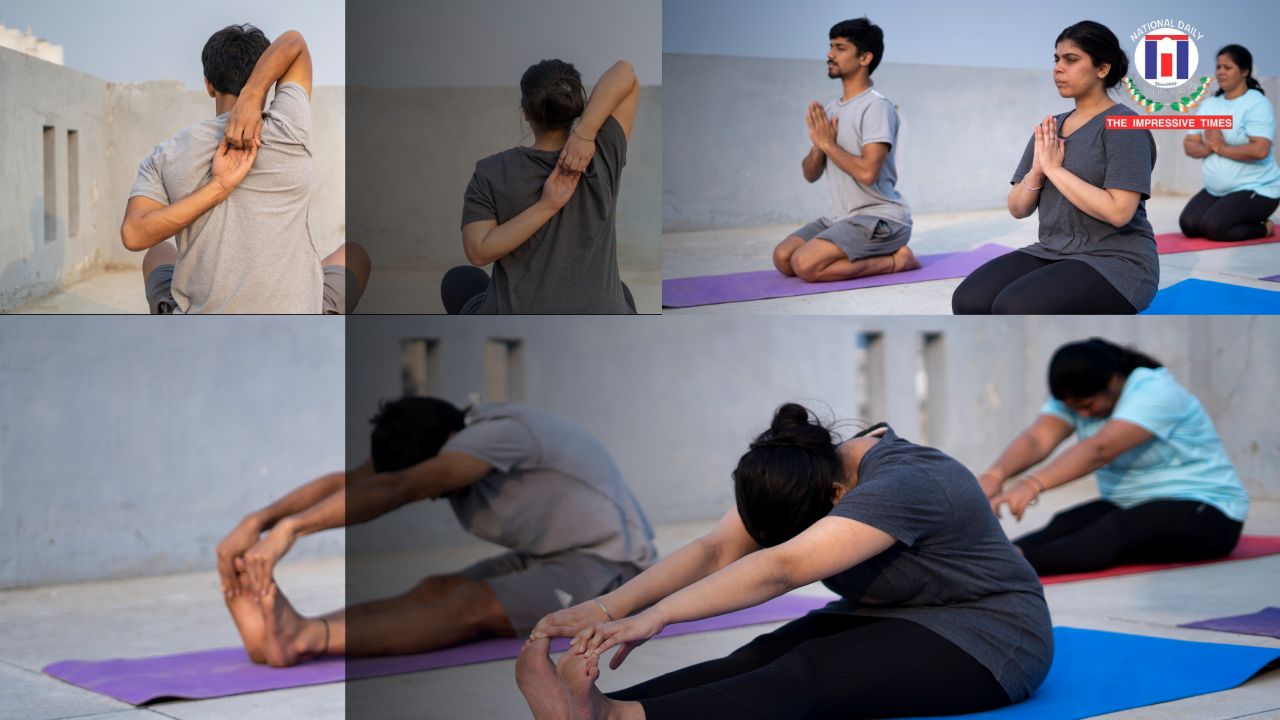
TIT Correspondent
info@impressivetimes.com
Starting your day with a structured routine often sets the tone for everything that follows. For many fitness enthusiasts, yoga is the preferred morning ritual—calming, centering, and energising. But while unrolling your mat may feel like the first step, what you eat before and after your yoga session can significantly impact how your body performs and recovers.
Pre-yoga nutrition plays a vital role in preparing your body for asanas, especially those involving balance, flexibility, and breath control. According to Simrat Kathuria, Celebrity Dietitian and Wellness Coach, it’s crucial to keep the pre-session meal light and nourishing. “Heavy or greasy food is something I advise against before any yoga session,” she shared . “Grab a banana, almonds (soaked preferably), or have a smoothie 30 to 45 minutes before practice. These provide enough fuel but do not weigh one down or interfere with breath control and core engagement.”
Kathuria recommends smoothies made with fibre-rich fruits and healthy fats from nuts or seeds. These are not only easy on the digestive system but also provide sustained energy during the session. Avoiding oily or fried items is essential, as such foods can slow digestion and make it difficult to maintain focus or hold poses comfortably.
Dr. Pratayksha Bhardwaj, Dietitian and Weight Management Expert, echoes this view, stressing the importance of keeping the stomach light. “Yoga involves a lot of bending, stretching, and sometimes lying on the abdomen,” he noted. “A heavy meal before a session can result in discomfort, bloating, or even nausea, hampering the quality of the practice.”
After your yoga session, it’s just as important to refuel your body properly. Post-yoga nutrition helps repair muscles, restore energy levels, and support hydration. While the article primarily focuses on pre-yoga meals, experts generally advise incorporating a balance of protein and carbohydrates after your practice—such as Greek yogurt with fruits, a protein smoothie, or a small portion of oats with nuts.
The key is to listen to your body. If you’re practicing yoga early in the morning, a very light snack might be enough. For mid-day or evening sessions, time your meals so that you’re not too full or too hungry. Hydration is also crucial—make sure to drink water before and after the session to support circulation and muscle recovery.
Ultimately, combining mindful eating with mindful movement enhances the benefits of yoga, helping you feel more energised, balanced, and nourished—both on and off the mat.


















No Comments: